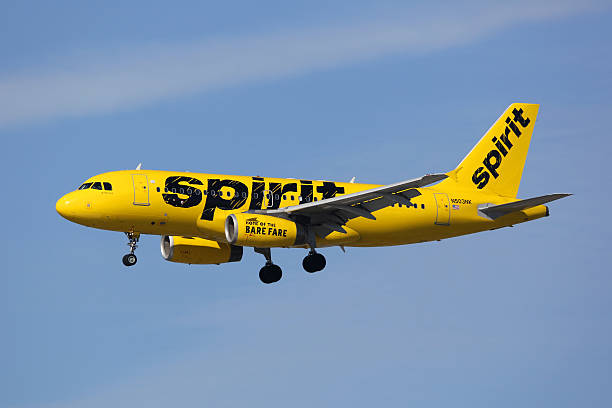
Federal Judge Halts JetBlue's Spirit Airlines Bid Due to Antitrust Concerns
Written by:
Charles Ferguson
In a seismic legal development for the aviation industry, US District Judge William Young has wielded his gavel to decisively halt JetBlue Airways’ attempt to acquire Spirit Airlines for a substantial $3.8 billion. The judge’s ruling aligns with the apprehensions voiced by the United States Department of Justice, which contends that the proposed merger could significantly curtail competition, potentially leading to adverse consequences for consumers through escalated airfares.
Let’s dive into the details of the case and how its outcome will impact our flight school partners:
Legal Battles
Judge Young’s decision, echoing the sentiments of the Department of Justice, revolves around the idea that the merger would disproportionately impact consumers who have come to rely on Spirit’s distinctively low-price model. While acknowledging the potential for heightened competitive pressure on larger airlines, Young underscored the indispensable role Spirit plays as one of the primary competitors in the airline industry. Spirit is recognized for offering unique innovation and maintaining a steadfast commitment to price discipline.
The trial, spanning 17 days in Boston, delved meticulously into various facets of the proposed merger. It scrutinized the direct competition dynamics between JetBlue and Spirit, evaluated potential effects on existing routes, and pondered the implications for future markets. In a proactive bid to address antitrust concerns, JetBlue had offered to divest gates and slots at strategically important airports.
Airlines’ Response
JetBlue and Spirit responded to the court’s ruling with a joint expression of disagreement, reiterating their firm belief that the proposed combination represents the most promising avenue for enhancing competition, delivering low fares, and elevating service standards for customers. Simultaneously, they assert that this strategic alignment positions them to effectively compete with the dominant US carriers. The airlines are currently engaged in a thorough review of the court’s decision, carefully considering their next steps within the intricate legal process.
Industry Implications
For JetBlue, this legal setback marks another instance following a prior federal antitrust challenge against its Northeast Alliance with American Airlines. The decision prompts a comprehensive reevaluation of JetBlue’s growth strategy and its envisaged assimilation of Spirit. Additionally, the potential ramifications of other proposed mergers in the airline industry, such as Alaska Air’s pursuit of Hawaiian Holdings, loom large. Industry observers express growing concerns about the likelihood of encountering heightened antitrust scrutiny in the wake of these developments.
What Does This Mean for Pilots?
As first-line members of the aviation industry, the implications of these legal maneuvers are undeniably noteworthy for Right Rudder Marketing and flight schools across the United States. While the court’s decision poses formidable challenges for major players in the airline arena, it simultaneously signals a potential positive shift for flight training and aspiring pilots in the United States. By preserving a competitive airline landscape, flight schools can bank on recruiting new pilots due to the ongoing demand of a competitive market. This ruling, despite presenting hurdles for some, reaffirms the commitment to fostering a resilient, dynamic, and fiercely competitive aviation sector—a prospect that bodes well for the future of flight training in the country.
Come chat with Right Rudder Marketing today and learn how to get your website in front of those potential students.

Content contributed by:
Charles Ferguson
Charles Ferguson has not yet added their bio. Update coming soon.
View Profile

